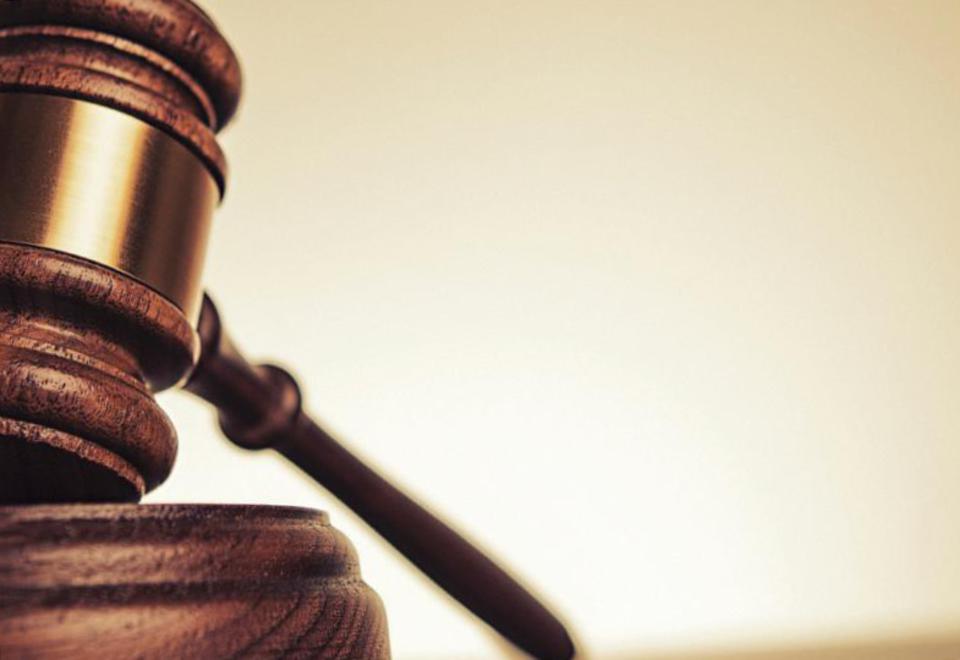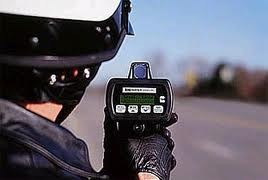
New Jersey Speeding Ticket Lawyer - Speeding Traffic Ticket Attorney in NJ
Speeding Tickets in New Jersey NJSA 39:4-98
If you require a speeding ticket lawyer in New Jersey call now for a free consultation. We aggressively defend Speeding Tickets in New Jersey. Speeding Tickets in New Jersey result in fines and penalties and in some Municipalities license suspension and in the stricter Municipalities, such as Westampton NJ, speeding tickets can even result in jail time if the speed is in excess of 30 MPH over the limit or over 100 MPH. The fines under NJS 39:4-98 and points vary with the speed asserted by the complaining officer. A New Jersey Speeding Ticket Lawyer can help. The speed is measured two ways either by Radar, usually a K-55 Band Radar or the newer LTI Marksman Laser Radar devices or by a Pace. Speeding tickets can result in the accumulation of NJ Motor Vehicle Points. Speeding tickets can result in a suspended license or even jail. Call to discuss your ticket with our speeding ticket lawyers.
CALL TODAY FOR A FREE INITIAL CONSULTATION
NEW JERSEY SPEEDING TICKET LAWYER
STEVEN P. LOMBARDI, ESQ.
Steven P. Lombardi is a highly experienced New Jersey Ticket Attorney. He is a Ticket Lawyer practicing in all New Jersey Municipal Courts.
Radar Guns Past and Present
K-55 Band Radar
Most Municipalities still use the K-55 Band Radar to support their speeding tickets. This type of radar gun emits a beam of radar that can be detected by a variety of Radar Detectors sold in Electronics Stores. The New Jersey State Police and some Municipalities have begun using Laser Radar Guns. These Laser Radar guns cannot be detected by the common radar detectors sold presently. Although special light sensors can be added to the detectors, drivers cannot react fast enough when the laser trips the monitor to slow down and escape receiving a ticket. The Laser Units being used currently are the LTI Marksman 20/20 and the LTI Ultra Light. These Laser Radar Guns are proven only accurate up to a distance of 1000 feet. Furthermore, Lasers must be beamed through the open air. They cannot be aimed through glass the way K-55 Band Radar can because a windshield would deflect the light beam, and it would not reach its intended target. The laser guns shoot highly concentrated light pulses that measure the distance to the targeted vehicle, then calculate the car's speed by determining how fast the pulses are reflected back. Laser Radar has some disadvantages as the guns cannot post a reading from a moving Police vehicle the way K-55 Band radar can. The trooper must be at a stand still when he aims the device and pulls the trigger. At 1,000 feet, the laser beam is only 3 feet wide. It takes only about a third of a second to record a car's speed after the trigger is pulled. By contrast, the radio waves emitted by K-55 Band Radar Guns spread out as wide as 350 feet at a distance of 1,000 feet. Those waves hit not only the targeted car but all the vehicles around it, muddling the results. In addition, it takes three to five seconds for the Band radar device to record the targeted car's speed. Sometimes that is just enough time for the offending vehicle or others nearby to slow down.
The State to prove a speeding violation must prove the officer operated the radar correctly and was properly trained in its operation. The State has the burden of proof in its case to prove speeding. In State v. Wojtkowiak, 170 N.J. Super. 44, (Law Div. 1979), rev'd on other grounds, 174 N.J. Super. 460 (App. Div. 1980) the court held that the State, in Band Radar use cases is required to prove that: 1) the officer who operated the radar unit was trained and experienced in the use of the device; 2) the unit was calibrated or tested by use of at least two external tuning forks, both singly and in combination; 3) the speedometer of the patrol car was calibrated or tested when the unit was operated in the moving mode; and 4) the unit was operating in the manual position when the officer received the speed reading from defendant's vehicle. The tuning forks must also be struck on non-metallic objects when calibrating the Band radar.
Laser Radar based Speeding Tickets in New Jersey
LTI 20-20 Laser Radar
The elements of a Laser Radar based Speeding offense are as follows.
1. Expert testimony in support of admissibility shall not be required, except as specifically set forth below.
2. Appropriate training of the law enforcement officer operating the laser speed detector shall be shown in each case.
3. Pre-operational checking procedures recommended by the manufacturer of the laser speed detector shall be shown to have been made in each case.
4. Speed measurements shall be admitted whether made in daylight or at night and within any temperature range likely to be found in New Jersey, even if made under conditions of light or moderately heavy rainfall, but speed measurements taken during heavy rain or while snow is falling shall not be admitted without the support of adequate expert testimony in the individual case.
5. Speed measurements made at any distance up to 1,000 feet shall be admitted, but measurements made at any distance in excess of 1,000 feet shall be admitted only with the support of adequate expert testimony in the individual case.
Under the New Jersey Case of In the Matter of the Admissibility of Motor Vehicle Speed Readings Produced by the LTI Marksman 20-20 Laser Speed Detection System 314 N.J. Super. 233, 714 A.2d 381; (Law Div. 1998) the court held that the Marksman LTI 20-20 is scientifically reliable and the results can be admitted into evidence under certain circumstances. In some situations expert testimony is need to support the reliability of the results. In cases of heavy rainfall or snow or at distances of greater than 1000 feet the results cannot be admitted without the State also offering an expert opinion from someone other than the Police Officer as to the scientific reliability of the readings.
Many people ask whether they had a right to see the results of the radar gun readings
at the time they were pulled over or if the Police Officer has made any written record
of the results. The answer to both of these questions is unfortunately no.
Challenges concerning the Maintenance of the Laser Radar Gun
New Jersey Police Departments use the LTI 20-20 Laser Radar Gun now manufactured by Tele - Traffic Ltd. from the United Kingdom. The element of proof the State needs to satisfy is that the pre-operation checking procedures recommended by the manufacturer be used for each radar gun to be used. There are four types of tests. Each Laser Radar Gun must undergo three tests that are recommended for "periodic" testing, the Display Integrity Test, the Scope Alignment Test and the general maintenance inspections concerning lens cleaning and lens inspection. The fourth test must be completed prior to each use of the radar gun and that test is called the fixed Distance Test. There are very specific requirements to complete this fixed distance test and it is doubtful that each complaining officer completes this test prior to each use at all or in the correct manner. If you wish to challenge a speeding ticket based on a Laser Radar gun reading our Law Firm Laser Gun Lawyers are experts at pulling apart the State's Laser Speeding case.
PACE BY TRAILING THE VEHICLE
A Pace is asserted by the complaining officer based on the speedometer readings of the officer's vehicle and testimony that the officer was able to determine the speed of your vehicle by comparison
of the speeds. The test is quite subjective and is challengeable on many legal grounds.
The following are the points and fines for Speeding Violations in New Jersey. The fines are doubled for Safe Corridor Zones, 65 MPH Zones and Construction Zones.
Speed Over Limit Fines Points
- 1-9 MPH Over $ 85 2
- 10-14 MPH Over $ 95 2
- 15-19 MPH Over $ 105 4
- 20-24 MPH Over $ 200 4
- 25-29 MPH Over $ 220 4
- 30-34 MPH Over $ 240 5
- 35-39 MPH Over $ 260 5
The Speeding Ticket Penalty Motor Vehicle Statutes also makes provisions for License Suspension and even jail time of up to 15 days. The Statute provides for penalties under NJSA 39:4-104 that allows for imprisonment for up to 15 days and license suspension. Some of the stricter judges especially in Westampton and Wall Townships have been known to impose these sentences when the speed is in excess of 30 MPH over the limit or over 100 MPH on the New Jersey Turnpike or Parkway.
CALL NOW (973) 921-2860 IF YOU ARE FACED WITH A SPEEDING TICKET IN NEW JERSEY

